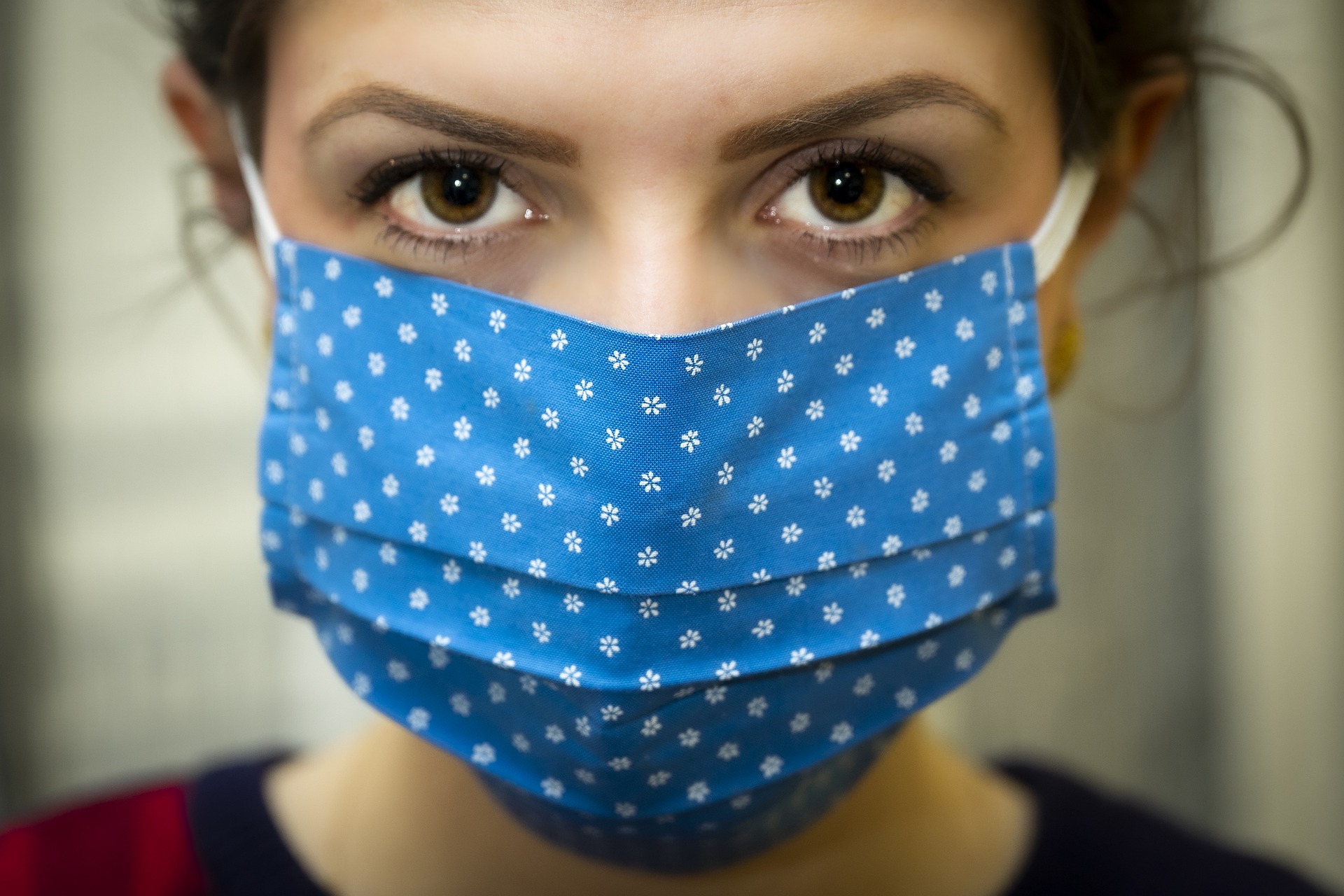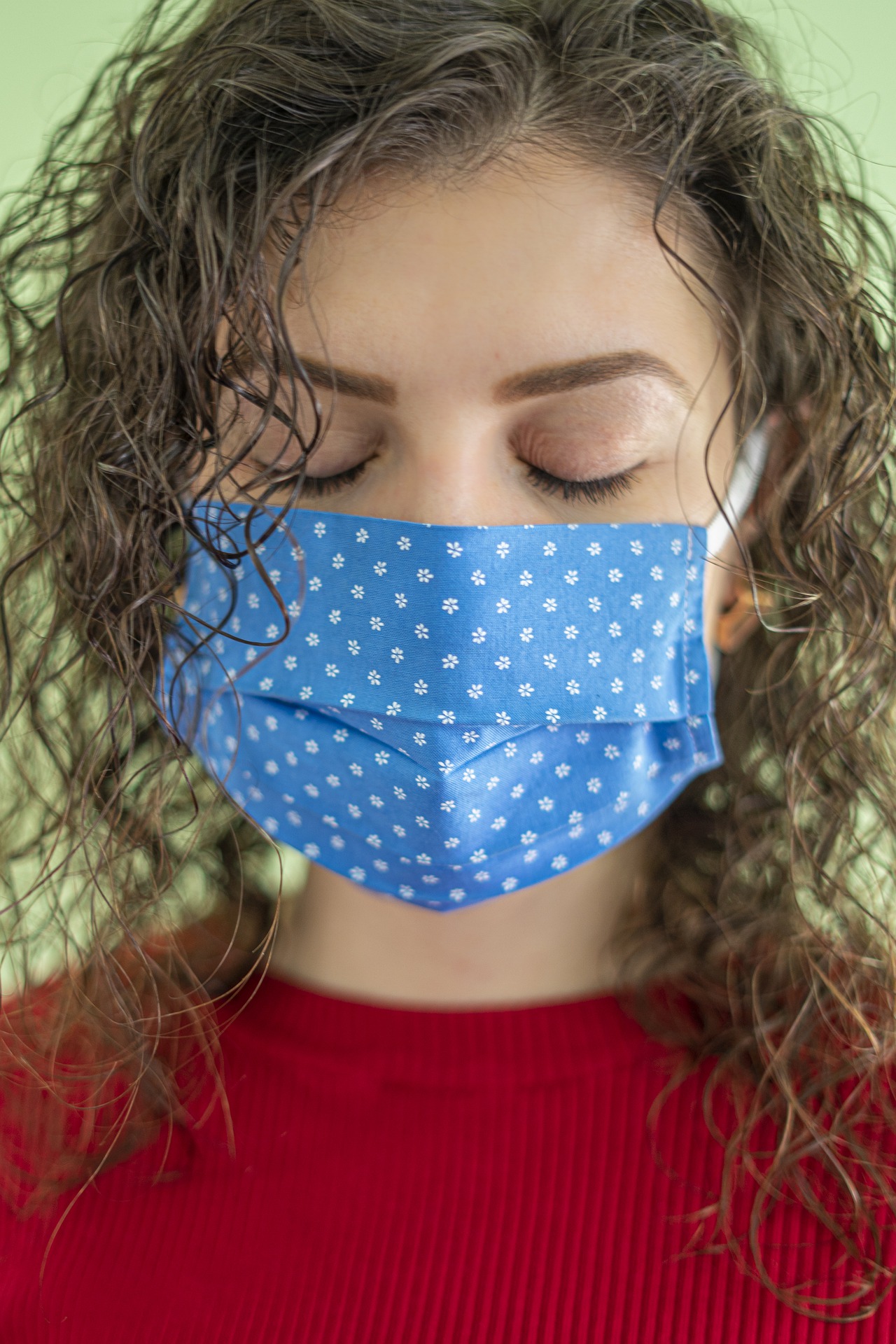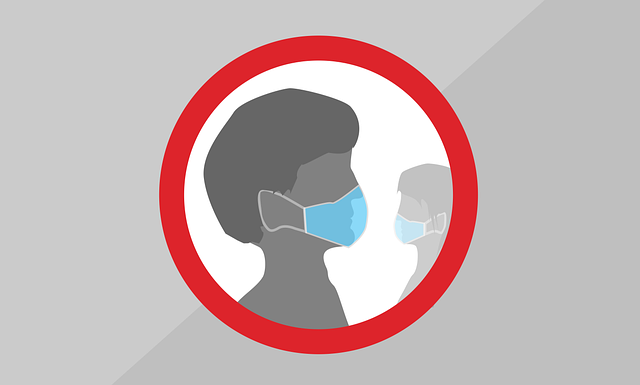Editor’s Note: Please click here for homemade masks tutorials and ways to help distribute mask to healthcare workers!

I’m writing about why wearing masks (almost any kind, even homemade) is an essential step in our war against COVID-19. Let me cut to the chase — MASKS MATTER. We all need to wear masks whenever we go out and we need to START NOW. Here’s why mask wear can bring us back to some sense of normalcy sooner.
Research has shown that wearing even loose cotton masks over your nose and mouth whenever you leave your home is critical to slowing the spread of SARS-CoV-2 (COVID-19). Wearing masks needs to become part of our new normal, and it’s a vital next step to our current sheltering-in-place and social distancing. What do Japan, the Czech Republic, South Korea, and Taiwan — who have blunted the COVID spread more than any other countries, have in common? Nearly 100% of their populations are wearing masks!
Charles Chiu, MD, one of the top infectious disease experts in the world working at UCSF in San Francisco recently stated, “…there are some hopeful signs that the strict shelter in place requirements throughout the Bay Area and California are working to flatten the curve.” However, community spread appears to only be about 20% of the new cases in San Francisco. While this is good news, the reality is that 50% of the new cases are coming from travelers from outside of California. This statistic plus the fact that asymptomatic people can transmit SARS-CoV-2 are two huge reasons why we need to transition to wearing masks in addition to continued social distancing and quickly offering widespread free testing throughout the country.
Cover Your Face Whenever You Leave Home
To be clear, I am NOT telling you to hoard masks. You don’t need to go out to buy N95 particulate respirator or similar masks, even if you can find them. What I AM telling you is to go into your emergency kits or storage bins, dig out the masks you may have purchased during fire season, and wear them when you go out. Or make your own masks out of everyday household items—it’s cheap and easy and could save your life or the lives of those close to you. If you’re not up for sewing, you can wrap a bandana (or a cotton swaddle!) around your head to cover your nose and mouth when you go out. Research has shown that these options are effective, and some tests have indicated that your best bet will be to use a pillowcase or cotton t-shirt material.
When someone coughs (or even talks), droplets of water end up in your face and the virus enters your body through your eyes, nose and mouth. Wearing even a very basic mask stops the droplets from entering your nose or mouth, drastically reducing the amount of virus that can enter your body and infect you. An N95 respirator mask is unnecessary in everyday, non-hospital settings to stop the spread of SARS-CoV-2. It’s only in a hospital around an aerosol generating procedure that you need a heavier-duty mask, like an N95 mask. Please continue to save the N95 and similar masks for healthcare workers unless you already have your own supply.
While masks are not a replacement for sheltering in place, frequent, thorough hand washing, and not touching our faces, they are a critical layer of additional protection that every single person needs to start using, everyday, whenever it is necessary to go out. Treat them like your clothing: wash them when you get home to keep them clean, and put them on every time you leave home.
Masks Work
 You may be wondering how relatively loosely woven cotton fabric masks or filters could possibly stop the spread of COVID-19 when the virus itself is so tiny. The answer is that the virus is mostly spread through droplets when someone coughs or even talks, and the likelihood of transmission of the virus increases when you have sustained exposure to it. The definition of “sustained exposure” varies a bit from country to country, but it includes standing less than 6 feet way from someone for between 15 and 30 minutes.
You may be wondering how relatively loosely woven cotton fabric masks or filters could possibly stop the spread of COVID-19 when the virus itself is so tiny. The answer is that the virus is mostly spread through droplets when someone coughs or even talks, and the likelihood of transmission of the virus increases when you have sustained exposure to it. The definition of “sustained exposure” varies a bit from country to country, but it includes standing less than 6 feet way from someone for between 15 and 30 minutes.
Mask wearing is as much about protecting the community as it is about protecting yourself. Many people have the virus before they show symptoms — they don’t even know that they’re sick, but they can still spread the disease. When you wear a mask, you protect those around you by stopping the spread of your own infection. Hong Kong, Czech Republic, South Korea, Japan, and Singapore have been extremely effective in slowing the growth of COVID-19 cases, and all of these countries use masks.
Masks Are Critical to Establishing Our New Normal
In the Bay Area, the lockdown in effect is absolutely necessary as we work toward further flattening of the curve. As I’ve explained in my previous article, we need to slow the spread of the disease to avoid overwhelming hospitals with huge surges of patients who need care to survive. But once the data show us that we have begun to flatten the curve, the next question will be how to safely begin to emerge from lockdown while avoiding another spike of disease. Fortunately, we can look to other countries like Singapore, Japan, South Korea, and the Czech Republic as examples of what to do, which includes everyone wearing masks.
Every country where they have already flattened the curve and emerged from lockdown is doing the following four things to control further spread of the virus: (1) rigorous testing for COVID-19; (2) rigorous tracing (figuring out who an infected person has had contact with); (3) quarantining anyone found to be positive; and (4) requiring everyone to wear masks anywhere they are around other people outside of their immediate family. We don’t need proof of how much masks are helping — we already know that they are. As these other countries are showing us, once we are past the apex of the curve and can start to think about spending more time outside of our homes, we can get the economy going again and save lives by wearing masks.
Making Masks a Social Norm
 Wearing masks is not a bizarre, outlandish, or ridiculous practice. People in lots of countries wear them all the time, especially during flu season, and they are showing us that wearing masks to stop the spread of COVID-19 works. In countries where masks are the norm, there is no stigma to wearing them, and that’s where we need to get to in the United States.
Wearing masks is not a bizarre, outlandish, or ridiculous practice. People in lots of countries wear them all the time, especially during flu season, and they are showing us that wearing masks to stop the spread of COVID-19 works. In countries where masks are the norm, there is no stigma to wearing them, and that’s where we need to get to in the United States.
The more of us that wear masks, the less stigmatizing they will be.
Masks are not currently part of Western culture, but fortunately, norms can change. Cigarette smoking used to be widely acceptable in major cities in the United States, but it isn’t anymore. And neither is leaving your dog’s poop on the sidewalk. Just like making a pointed comment (or giving the stink-eye) to someone who doesn’t clean up after their dog can encourage them to do better, social pressure can encourage people who aren’t wearing a mask to wear one.
The information on this website is not intended or implied to be a substitute for professional medical advice, diagnosis, or treatment. All content, including text, graphics, images, and information, contained on or available through this website is for general information purposes only. Always seek the advice of your physician or other qualified health care provider with any questions you may have regarding a medical condition or treatment and before undertaking a new health care regimen. Never disregard professional medical advice or delay in seeking it because of something you have read on this website.
















